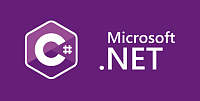Advantages and Disadvantages of Dot Net Development
Exploring the Advantages and Disadvantages of .NET Development
In the ever-evolving landscape of software development, choosing the right framework is crucial for building robust, scalable, and high-performance applications. .NET, developed by Microsoft, has emerged as a popular framework due to its versatility and comprehensive suite of tools. However, like any technology, .NET has its own set of advantages and disadvantages that developers must consider. This article delves into the pros and cons of .NET development. It provides insights for businesses and developers looking to leverage this framework for their projects.
The Advantages of .NET Development
Versatility and Language Support
One of the standout features of .NET is its versatility. .NET supports multiple programming languages, including C#, F#, and Visual Basic, allowing developers to choose the language that best fits their project requirements and expertise. This flexibility is particularly beneficial for teams with diverse skill sets, as it enables seamless collaboration and integration of different components within the same application. For more information on the supported programming languages in .NET, visit the official .NET documentation.
Comprehensive Framework
.NET offers a comprehensive framework that includes a vast class library, pre-coded solutions, and reusable code components. This extensive library simplifies the development process by providing ready-to-use functionalities for common tasks such as data access, cryptography, web application development, and more. By leveraging these built-in features, developers can significantly reduce development time and focus on creating unique, value-added features for their applications.
Cross-Platform Development
With the introduction of .NET Core, the framework has evolved to support cross-platform development. .NET Core allows developers to build applications that run seamlessly on Windows, macOS, and Linux, providing greater flexibility and reach for their software solutions. This cross-platform capability is particularly advantageous for businesses aiming to target a broader audience without incurring the additional costs associated with developing and maintaining separate codebases for different operating systems. Learn more about cross-platform development with .NET Core on the Microsoft .NET Core guide.
Performance and Scalability
Performance is a critical consideration for any application, and .NET delivers on this front with its high-performance runtime. The framework's just-in-time (JIT) compilation and optimization techniques ensure that .NET applications run efficiently and respond quickly to user interactions. Additionally, NET's scalability features, such as load balancing and caching, make it an ideal choice for building large-scale enterprise applications that can handle increased workloads and user demands.
Robust Security Features
Security is paramount in today's digital landscape, and .NET offers robust security features to protect applications from threats and vulnerabilities. The framework includes built-in security mechanisms such as code access security (CAS), role-based security, and cryptographic services. These features enable developers to implement stringent security measures, ensuring that their applications are protected against unauthorized access and data breaches.
Active Community and Support
.NET benefits from an active and vibrant community of developers, which translates to extensive support and resources. Whether you're a seasoned developer or a newcomer, you can find a wealth of tutorials, forums, documentation, and third-party libraries to aid your development journey. Additionally, Microsoft's ongoing commitment to .NET ensures regular updates, bug fixes, and new features, keeping the framework relevant and up-to-date with the latest technological advancements.
The Disadvantages of .NET Development
Learning Curve
While .NET's versatility is a significant advantage, it can also present a steep learning curve for developers who are new to the framework. The sheer breadth of the .NET ecosystem, combined with its multiple languages and extensive libraries, can be overwhelming for beginners. However, with proper training and resources, developers can overcome this initial hurdle and unlock the full potential of .NET.
Cost Considerations
Although .NET Core is open-source and free to use, the broader .NET ecosystem includes tools and components that may require licensing fees. For example, Visual Studio, the integrated development environment (IDE) commonly used for .NET development, offers a free Community edition but charges for Professional and Enterprise editions with advanced features. Businesses must factor in these costs when planning their .NET development projects.
Platform-Specific Limitations
While .NET Core has made significant strides in enabling cross-platform development, some platform-specific limitations still exist. Certain features and libraries may be exclusive to the Windows environment, potentially restricting the functionality of .NET applications on other operating systems. Developers need to be mindful of these limitations and assess whether they will impact their project requirements.
Resource Consumption
.NET applications, particularly those developed with older versions of the framework, can be resource-intensive. High memory and CPU usage can affect the performance of applications, especially on devices with limited resources. However, .NET Core has addressed many of these issues by offering a more lightweight and efficient runtime, making it a better choice for resource-constrained environments.
Dependency on Microsoft Ecosystem
As a Microsoft-developed framework, .NET is deeply integrated with the Microsoft ecosystem. While this integration offers benefits such as seamless compatibility with other Microsoft products and services, it can also create dependencies that limit flexibility. Businesses that prefer a more vendor-agnostic approach may find this reliance on Microsoft technologies to be a drawback.
Conclusion
.NET remains a powerful and versatile framework for building a wide range of applications, from web and mobile apps to enterprise-level solutions. Its extensive language support, comprehensive framework, and cross-platform capabilities make it an attractive choice for developers and businesses alike. However, it's essential to weigh these advantages against the potential drawbacks, such as the learning curve, cost considerations, and platform-specific limitations.
For businesses looking to leverage .NET for their software projects, partnering with experienced c# .net development services can help navigate these challenges and maximize the benefits of the framework. These services provide expert guidance, development, and support, ensuring that your .NET applications are built to the highest standards of performance, security, and scalability.
Similarly, engaging with professional dot net development services can streamline the development process, reduce time-to-market, and enhance the overall quality of your software solutions. By making informed decisions and leveraging the strengths of the .NET framework, businesses can achieve their development goals and deliver exceptional value to their users.
In summary, while .NET development presents both opportunities and challenges, its robust features and active community support make it a formidable choice in the realm of software development. By understanding the pros and cons and seeking professional guidance when needed, businesses can harness the full potential of .NET to create innovative and impactful applications.




